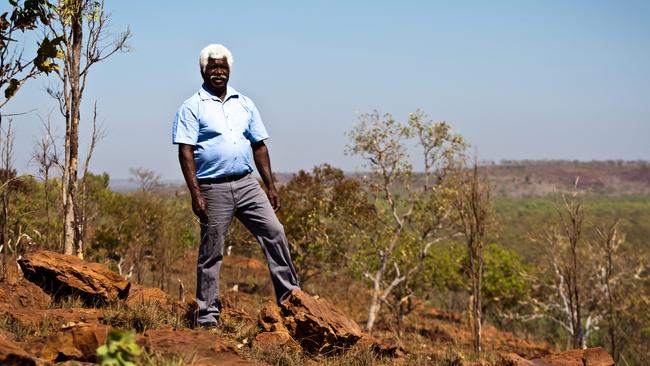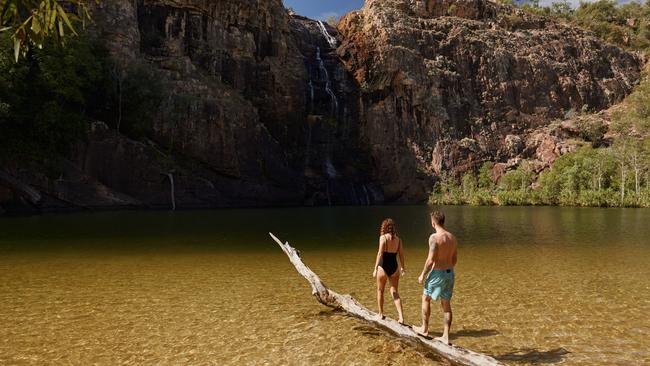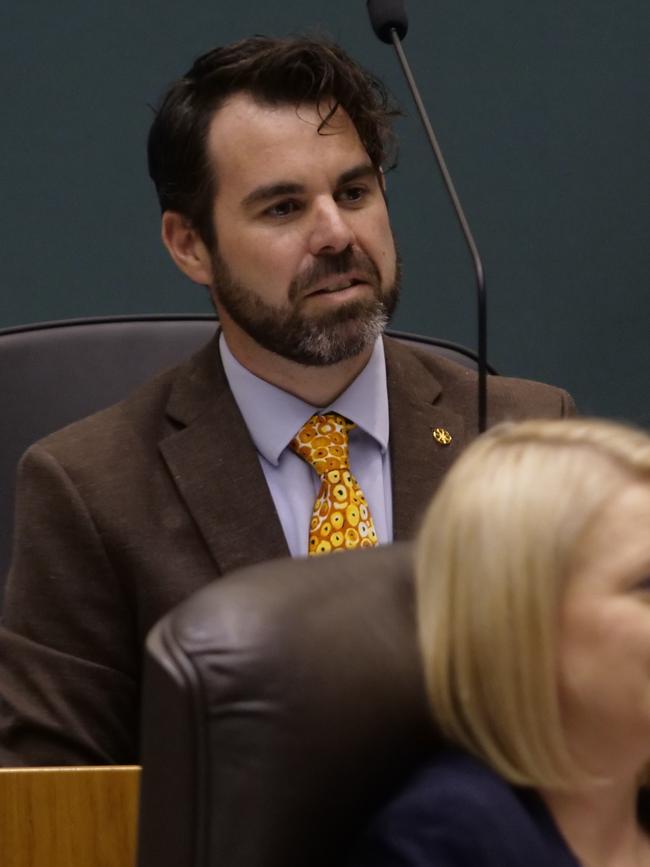Kakadu Gunlom Falls uncertain future after Supreme Court rules Commonwealth ‘immunity’ for sacred site breach
The future of a closed Kakadu waterfall and popular swimming hole remains uncertain after a major decision from the Supreme Court.
Indigenous Affairs
Don't miss out on the headlines from Indigenous Affairs. Followed categories will be added to My News.
THE Federal Government is “immune” to any criminal punishment for illegal works on a sacred site at one of Kakadu’s most beloved waterfalls, a court has ruled.
The Commonwealth was granted immunity for breach of the Northern Territory’s Sacred Sites Act, including destruction or damage to sacred sites in Kakadu and Uluru.
The full bench of the Supreme Court handed down the major decision on Friday following a two-year battle over the Gunlom Falls, in Kakadu National Park.
The falls, one of the most popular attractions in Kakadu, have been closed since 2019 following a dispute between Traditional Owners and the Director of National Parks.
The Gunlom Falls, which features cascading waters and pristine plunge pool, were closed to the public after construction of a walkway went ahead against the wishes of Jawoyn Traditional Owners.
The Aboriginal Areas Protection Authority alleged the Director of National Parks conducted works on a sacred site.

The court heard the area was recognised as a sacred site for Jawoyn people and on land leased from the Gunlom Aboriginal Land Trust.
The walkway was opposed as it came too close to a restricted area of the sacred site.
Despite the opposition from Gunlom leaders, the Parks Director hired a construction contractor to realign the walking track at Gunlom Fall.
The works began in April of 2019, with rocks, trees, soil and vegetation cleared off the site.
The Supreme Court said the Director did not have an Authority Certificate or a Minister’s Certificate, as required under the Territory’s Sacred Sites Act.
The maximum penalty for carrying out work at a sacred site is two years in prison.
However, the Supreme Court found due to a “statutory construction” the Commonwealth agency was immune to any prosecutions.
The court found the Director was not bound by Territory laws which protect sacred sites within the Territory.

The Director of National Parks had previously entered a plea of not guilty on this technical ground.
The decision from Justices Michael Grant, Stephen Southwood and Peter Barr said a lack of legal clarity in both the Commonwealth and Territory Sacred Sites Acts meant the Parks Director was immune from any penalty.
“The Director(’s role) is clearly to pursue the national or public interest, and to follow policies determined by the executive government,” the Supreme Court found.
Aboriginal Areas Protection Authority acting Chief Executive officer Sophie Creighton said the decision was “devastating”.
“It is staggering that the Commonwealth has spent years and thousands and thousands of dollars to argue for the right to ignore custodians and damage sacred sites,” Dr Creighton said.
“Despite the NT having the best legal protection of sacred sites in Australia, the laws do not apply to everyone.”

Chairman Bobby Nunggumajbarr said custodians wanted to allow visitors to see these important places safely, while respecting sacred sites.
“Trust has been broken between Parks and custodians. This is not joint management. This is deeply disrespectful and arrogant,” Mr Nunggumajbarr said.
“Parks have started work to fix the path, but with today’s decision they have shown the law is not strong enough to protect sacred sites.”
Kakadu National Park is one of only three national parks in Australia that is under joint management between the Commonwealth government and Traditional Owner groups.
Earlier this year, a report commissioned by then Federal Environment Minister Sussan Ley found that communications and engagement had broken down between Traditional Owners and the Commonwealth government.
The Justices said the Territory had tried to fix this legal loophole 17 years ago, but the amendments did not sufficiently clarify the issues.
In 2005, the Territory parliament passed amendments to the Sacred Sites Act to stop the Crown being able to damage protected sites with no repercussions.

The Minister at the time said damage to sacred sites by the government, agencies, and their contractors was a “source of dissatisfaction among both authority members and the Aboriginal custodians”.
However, on Friday the full bench ruled that while the 2005 changes clarified the Territory government was responsible for damage, it failed to clarify that the Federal Government was also liable.

“(A) very deliberate legislative choice made to limit the imposition of criminal liability to the Territory Crown,” the full court found.
The Justices said the “immunity” could be removed if legislation was “in sufficiently clear terms”.
“The law is not beyond the legislative power of the Legislative Assembly; but that is a question different to whether the law binds the Director as a matter of statutory construction.”
Attorney General Chansey Paech said while he respected the decision, he was “disappointed and saddened by the outcome”.
“The Director of National Parks flagrantly carried out works at Kakadu’s Gunlom Falls in 2019 without taking into account consultations with the Traditional Owners, or any engagement with the Aboriginal Areas Protection Authority,” Mr Paech said.
He said the World-Heritage listed park had been “failed” by the Director of National Parks by not abiding by the Sacred Sites Act.
“The Territory Labor Government will now work with the Federal Government to explore legislative changes to ensure stronger protections of our cultural heritage.”





